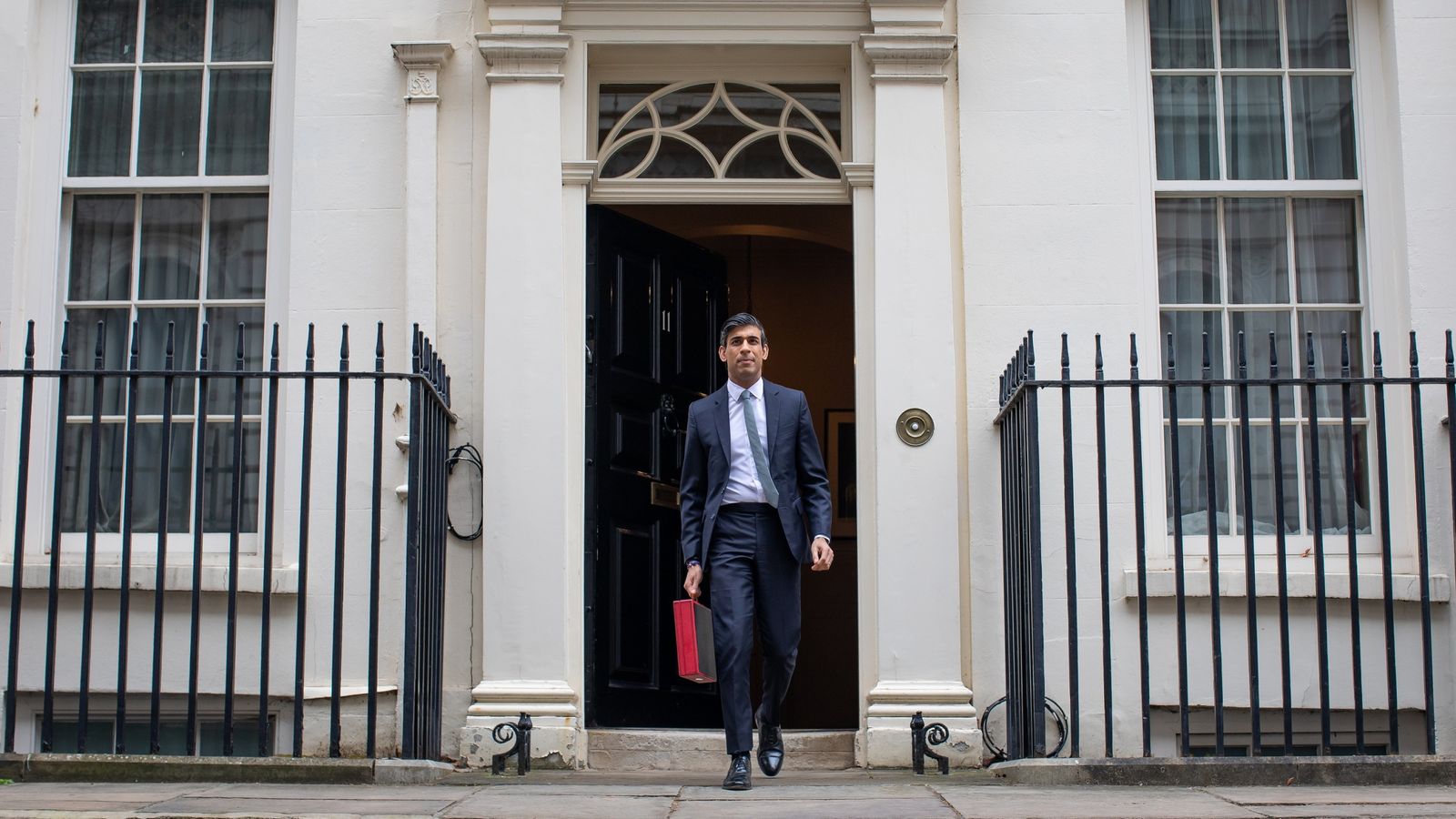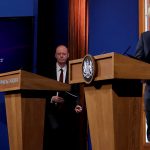Today’s vote on foreign aid matters enormously. It is an important display of raw political might by the Treasury which will have repercussions for months and years to come.
It is not only significant because it resets expectations on when the international aid budget will be restored to 0.7% of gross national income. The restoration has been pushed off almost certainly until the next Parliament, and possibly to future decades.
Even more significant is that today’s vote will likely change the direction of the public spending debate this Autumn and beyond, and could even curb some of the prime minister’s tendencies towards spending excess.
Please use Chrome browser for a more accessible video player
That’s because today’s Treasury motion is unprecedented in modern times because it links direct consequences – in terms of higher taxes – if the government desire for lower spending is defeated.
In other words, Mr Sunak has acquired a new political weapon – a Tory Commons majority against tax rises – which he can use against those calling for tax rises and even his neighbour in Number 10.
After months of watching the PM lean into rebellions over issues like free school meals and Universal Credit, this can help turn the tide. This is handy as the Chancellor enters an Autumn anticipating fights with colleagues wanting money for social care, green spending, education support and public sector wages as well as facing a spending review across all departments.
It also leaves Labour, once again, a bit part player – trying to work out how high to climb up the moral hill of outrage in the face of polling which suggests the public actively support cutting the aid budget – 66% told YouGov they backed the cut to aid in November.
Labour’s problem is that the government is managing to carry the Commons while embracing two contradictory positions at once.
All day ministers have claimed Mr Johnson and Mr Sunak are on the front foot setting out the conditions under which the aid budget would rise back to 0.7% and hinting they might be met sooner rather than later. This allows aid rebels demanding a specific date a ladder to climb down.
The reality is all but the reverse, and is a strategy derived from an initial position of weakness.
After the aid cuts were announced in November, Tory rebels were given personal assurances by Mr Johnson that the cut would last just one or two years. Not trusting this guarantee, a rebellion of 50-plus Tory MPs grew a head of steam wanting the aid budget cuts reversed even sooner. Defeat would mean the Chancellor having to suddenly find £4 billion more a year – and signal the government could be defeated on matters of fiscal discipline.
So the Treasury has sought to change the terms of debate. They spotted many of the aid rebels were also fiscal hawks, so initiated a vote which threatened immediate “fiscal consequences” – tax rises or spending cuts – if the government motion to keep the £4 billion cuts to aid spending in place was lost. Tory MPs who voted down the prime minister’s motion could then be accused of voting for tax rises. It worked.
The vote will have a chilling effect on future spending debates. Mr Sunak will be able to point out that he has a majority against additional spending when MPs are forced to contemplate the trade-off between cuts and higher taxes. It is no coincidence the new tests mirror the fiscal commitments in the Tory manifesto – and will take much more than two years to be met. And no matter that Mr Sunak has invented a false binary choice, ignoring borrowing and other clever accountancy tricks that can always be deployed when spending is needed.
For the public, Mr Sunak is the man behind the furlough scheme, and his reputation for generosity runs deep. This will help in the coming months when, as today signals, his plan is to be anything but as he attempts to restore some form of economic prudence after the £400 billion spending glut caused by the pandemic.






















